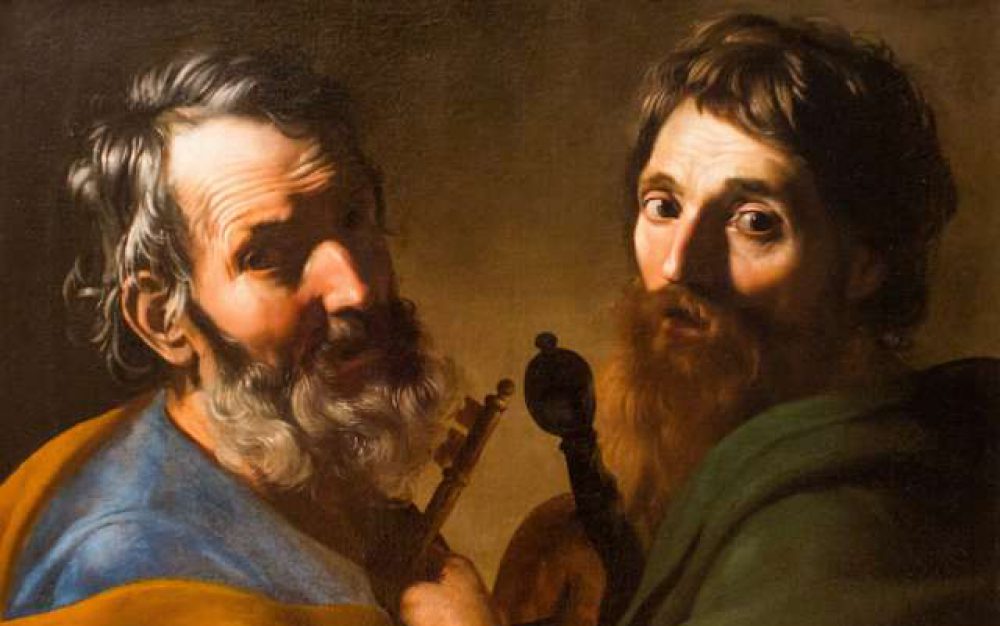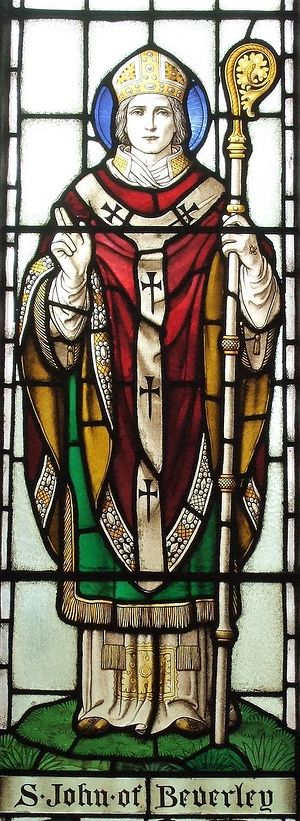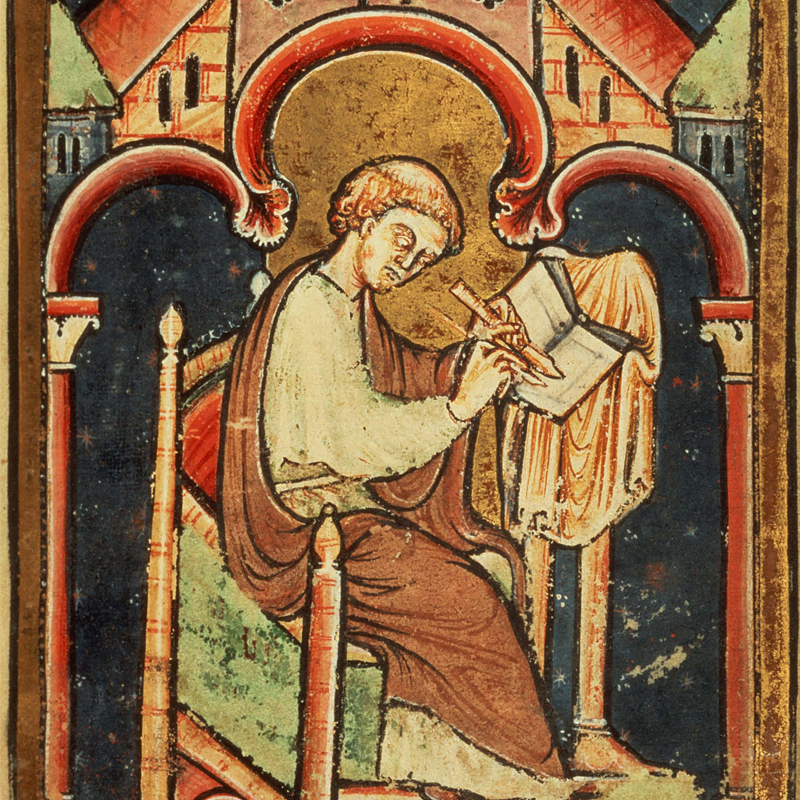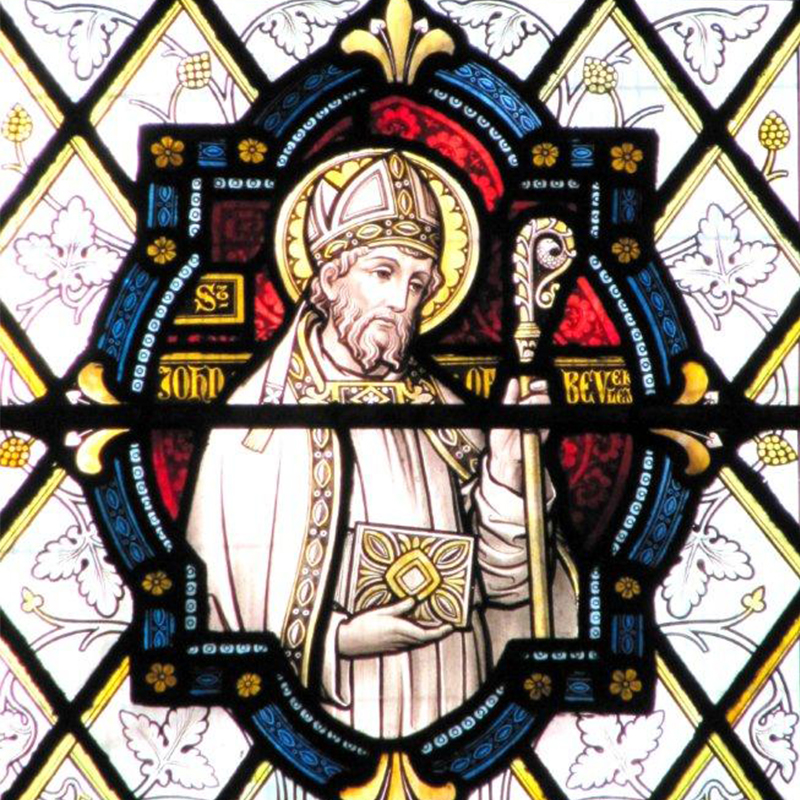Saint of the Day – 7 May – St John of Beverley (Died 721) Bishop of Hexham and then the Bishop of York, Scholar and Teacher, Apostle of the poor, and the sick Ascetic, Miracle-worker., a great friend of St Bede the Venerable. He founded a Monastery at Beverley, Yorkshire from which the Town developed. Today, it is a vibrant market Town of some 31,000 people. It owes its foundation and growth to Saint John of Beverley. The Beverley Cathedral now stands on the site of St John’s Monastery. Born at Harpham, Yorkshire, England and died on 7 May 721 at Inderawood Abbey, England of natural causes. Patronage – City of Beverley, Yorkshire and the Diocese of Middlesbrough, England. Also known as – John of York. Additional Memorial – 25 October (translation of relics). John was Canonised in 1037 by Pope Benedict IX.
The Roman Martyrology reads today: “At York, in England, St John, Bishop, renowned for his saintly life and miracles.”
John was born in Harpham, a Yorkshire village, in the seventh century and was educated in Kent by the Abbot St Adrian at the school founded by St Theodore. He returned to Yorkshire and entered the double Abbey of Whitby, then under the rule of the Abbess Hilda.
His abilities marked him out for preferment and he was appointed Bishop of Hexham after the death of St Eata. John was diligent in visitation, considerate towards the poor and attentive to the training of students, whom he maintained under his personal charge. He spent whatever time he could spare from his Episcopal duties in solitude, often retiring for set periods to a cell beside the Church of St Michael beyond the River Tyne, near Hexham.
He was kind to the sick – including a dumb youth with a horrific skin disorder who he both taught to speak and cured and the poor, whom he would seek out in order to serve and assist them in all their needs. On the death of St Bosa of York, St John was appointed Bishop of York.
St Bede the Venerable, who received Holy Orders from our Saint when Bishop of Hexham, refers to him at some length in his Ecclesiastical History, providing testimony of his sanctity and of miracles he performed, attested to by eye-witness accounts of the Abbots of Beverley and of Tynemouth.
As Bishop of York, St John desired to maintain his practice of contemplation in solitude and chose for his retreat, the Abbey he had built at Beverley, then nothing more than a forest in the east of the county.
In 717, tired by old age and the demands of his office, he relinquished his Episcopal See to St Wilfrid the Younger and he retired to Beverley to spend the last four years of his life in prayer.
He died on 7 May 721 and was Canonised in 1037. Many miracles are ascribed to John, whose pupils were numerous and devoted to him. The popularity of his cult was a major factor in the prosperity of Beverley during the Middle Ages. He was celebrated for his scholarship, as well as for his virtues. Around 1066, Folcard was commissioned to write a Life of John. An account of John’s miracles was written by William Ketel in the 11th or 12th Century which contains the first mention of King Æthelstan’s visit to Beverley.
The destruction of his Shrine in Beverley marked the disappearance of any record of its contents. But in 1664 a vault beneath the floor of Beverley Cathedral was discovered, with a leaden cask bearing an inscription stating that it contained the relics of the Saint. The relics remain under the floor, covered by a marble slab.
“Few native Saints enjoyed a greater reputation in Catholic England than St John of Beverley,” asserts Butler’s Lives of the Saints.
His Shrine was indeed one of the most popular places of pilgrimage before the Reformation and St John Fisher, who was born in Beverley and the Blessed Julian of Norwich too, were both devoted to him. They were not the only ones. The learned St Alcuin had an extraordinary a devotion to the Anglo-Saxon Saint St Alcuin celebrated miracles attributed to his intercession, in verse.
The earliest existing mention of John’s Banner is when the Wessex King Athelstan ascribed to him his victory over joint Scottish and Viking forces at the Battle of Brunanburh (possibly Bromborough, Wirral) in 937. Then in 1138 when Thurstan incorporated it into the standard which gave its name to the Battle of the Standard. By 1266 it was accepted, that when levies were made in Yorkshire for the Royal army, it was sufficient for Beverley to send one man with the banner of John. In 1415 King Henry V credited the miraculous intervention of St John for the English defeat of superior French forces at Agincourt – because the battle was fought on the Feast of the Translation of his relics in 1037 and under the Banner of St John of Beverley.
King Edward I visited the Beverley Cathedral in 1296, 1297 and 1300 on his way north to fight with the Scottish he took the St John’s Banner with him to aid him. Edward II, Edward II, and Henry IV also used the Banner in military campaigns.
Henry ordered his Feast to be kept throughout England and named St John as a Patron of the Royal Household. He and his Queen visited his Shrine in Beverley on pilgrimage in 1420.
A little over a century later, however, the Shrine was in ruins, destroyed by King Henry VIII in 1541 during the Reformation.








